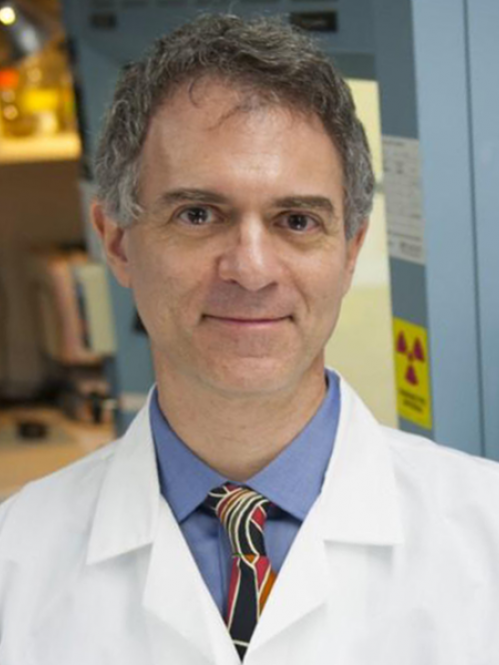David Alland
Additional Info Field will populate below the Person's Title on the full Profile page

Clinical Info
Medical Expertise
Internal Medicine, Infectious Disease
Hospital Affiliation
University Hospital, Newark
INSURANCE PARTICIPATION
Insurance Participation: with Provider Number (where applicable)
The information below is subject to change and should not be relied upon until after it is verified with the insurance company. In addition, psychiatric providers should be contacted directly for information on their participation with managed care and insurance companies.
- Horizon NJ Total Care(HNJH)
- UHC Comm/Oxford
- VA Choice (Health Net Federal Services)
Languages
French
Biography
Overview
Dr. Alland is a Professor of Medicine and the Chief of Infectious Disease as well as the Director of the Center for Emerging Pathogens and the Rutgers Regional Biocontainment Laboratories at Rutgers New Jersey Medical School. Dr. Alland is internationally recognized for his pioneering work on the epidemiology, diagnosis,
treatment, and molecular evolution of M. tuberculosis (Mtb). His epidemiologic studies in the 1990s showed that drug resistant Mtb was being transmitted in institutions and the community, impacting national TB control efforts. He then led a 10-year research effort that culminated in the development of the Xpert MTB/RIF Assay, the first on-demand, point-of-care TB test, and the first replacement for the
acid-fast smear to diagnose TB in over 100 years, recommended by the WHO and now used in 130 countries. This work continues in the development of rapid diagnostics for extended TB drug resistance, and blood stream detection of bioterrorism agents, S. aureus, and Candida species. Focusing on drug resistance mechanisms, he described the Mtb iniBAC operon as the first genetic cause of drug tolerance in Mtb, subsequently showing that Lsr2 was a novel histone like protein that regulated iniBAC expression. His group along with the Sassetti laboratory discovered that phase variation in the M. tuberculosis glpK gene produced heritable, but rapidly reversible multi-drug tolerance.
Education
MD, 1984, Columbia College of Physicians and Surgeons
MSc, 1988, London School of Hygiene & Tropical Medicine, University of London
BA, 1980, Columbia College
Licensure & Certification
Medical Licensure
New Jersey
Publications
Relevant Publications
Colangeli R, Haq A, Arcus V.L, Summers E, Magliozzo R. S, McBride A, Mitra A.K, Radjainia M, Khajo A, Jacobs Jr. W. R, Salgame P, Alland D. The multi-functional histone-like protein Lsr2 protects mycobacteria against reactive oxygen intermediates. Proc. Nat. Acad. Sci. U.S.A. 2009, 106 :4414-4418. PMID: 19237572.
Tasslimi A, Sison E, Story E, Alland D , Burday M, Morrison S, Nalmas S, Smith S, Thomas PA, Wenger P, Sinha A. Disappearance of vaccine-type invasive pneumococcal disease (IPD) and emergence of serotype 19A in a minority population with high HIV prevalence and low childhood immunization rates. Clinical and Vaccine Immunology . 2009, 16 :1256-1259. PMID: 19515869
Abadia E, Sequera M, Ortega D, Mendez MV, Escalona A, Da Mata O, Izarra E, Rojas Y, Jaspe R, Motiwala AS, Alland D , de Waard JH, Takiff HE. Mycobacterium tuberculosis ecology in Venezuela : Epidemiologic correlates of common spoligotypes and a large clonal cluster defined by MIRU-VNTR-24. BMC Infectious Diseases. 2009, 9 :122. PMID: 19660112.
Safi H, Fleischmann RD, Peterson SN, Jones MB, Jarrahi B, Alland D . Allelic exchange and mutant selection demonstrate that common clinical embCAB gene mutations only modestly increase resistance to ethambutol in Mycobacterium tuberculosis. Antimicrob Agents Chemother . 2010, 54 :103-108. PMID: 19822701.
Helb D, Jones M, Story E, Boehme C, Wallace E, Ho K, Kop J, Owens MR, Rodgers R, Banada P, Safi H, Blakemore R, Lan NT, Jones-Lopez EC, Levi M, Burday M, Ayakaka I, Mugerwa RD, McMillan B, Winn-Deen E, Christel L, Dailey P, Perkins MD, Persing DH, Alland D . Rapid detection of Mycobacterium tuberculosis and rifampin-resistance using on-demand, near patient technology. J Clin Microbiol . 2010, 48 :229-237. PMID: 19864480.
Chakravorty S, Aladegbami B, Burday M, Levi M, Marras SA, Shah D, El-Hajjj HH, Kramer FR, Alland D . Rapid Universal Identification of bacterial pathogens from clinical cultures by using a novel sloppy molecular beacon melting temperature signature technique. J Clin. MIcrobiol . 2010, 48 :258-267 PMID 19923485
Motiwala AS, Dai Y, Jones EC, Hwang SH, Lee JS, Cho SN, Via LE, Barry CE 3 rd , Alland D . Mutations in extensively drug-resistant Mycobacterium tuberculosis that do not code for known drug-resistance mechanisms. J Infect Dis. 2010, 201:881-8. PMID: 20136412
Blakemore R, Story E, Helb D, Kop J, Banada P, Owens MR, Chakravorty S, Jones M, Alland D . Evaluation of the analytical performance of the Xpert MTB/RIF assay. J Clin Microbiol . 2010 48 :2495-501. PMID: 20504986.
Wang F, Jain P, Gulten G, Liu Z, Feng Y, Ganesula K, Motiwala AS, Ioerger TR, Alland D , Vilcheze C, Jacobs WR Jr, Sacchettini JC. Mycobacterium tuberculosis Dihydrofolate reductase is not a target relevant to the anti-tubercular activity of isoniazid. Antimicrob agents chemother. 2010 Jun 21. [Epub ahead of print] PMID: 20566771.
Current Research
Rapid Diagnostics For Biodefense
The Alland laboratory concentrates on many different aspects of M. tuberculosis molecular biology, epidemiology and diagnostics. Many of these areas are related to understanding how antibiotic resistance develops on both the cellular and epidemiological level.
The Alland laboratory has also been working to develop a "molecular blood culture" that will make it possible to identify all common medical pathogens from blood samples in under an hour, without the need for conventional culture methods. The advent of bioterrorism has placed a new emphasis on the need for rapid diagnostic assays that are sufficiently simple and robust that they can be performed in a
doctor's office, clinic or local hospital. Blood cultures are one of the most common methods for detecting infections in patients with fever. A rapid "molecular" version of a blood culture would fulfill many of the diagnostic needs in health care settings for biodefense.